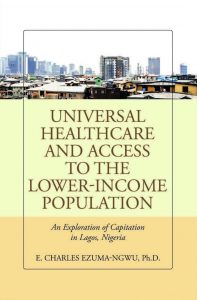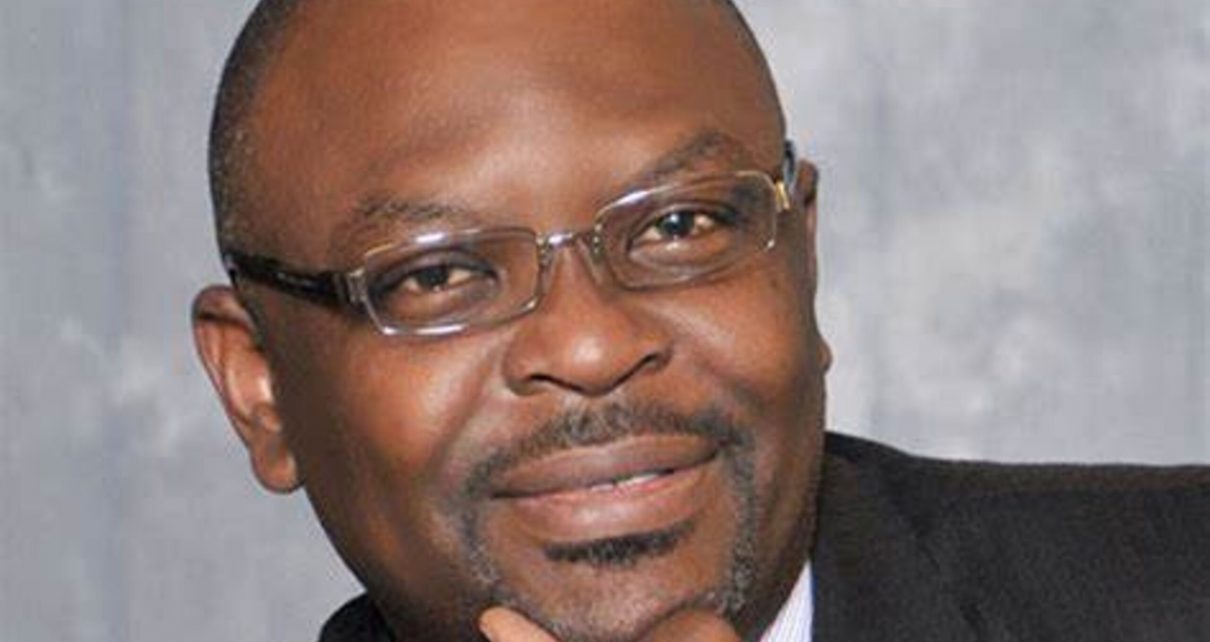Amidst the intricate framework of Nigeria’s public healthcare system, significant challenges emerge, with critical issues of underfunding, limited resources, and inadequate staffing plaguing its effectiveness. At the federal, state, and local levels, the system grapples with these daunting obstacles, impacting its ability to provide accessible and quality healthcare services for the nation’s citizens. A critical shortage of doctors and gross underpayment of healthcare workers exacerbates the situation, further straining the already burdened system. Compelled by circumstances, most Nigerians are left with no choice but to bear the weight of out-of-pocket expenses, often grappling with inaccessible or inadequate healthcare services. Additionally, the health sector’s suboptimal data collection and record-keeping practices add to the complexities, creating barriers to the comprehensive understanding of healthcare trends and needs. It is within this backdrop that our enlightening interview with Dr. Charles Ezuma-Ngwu, a distinguished healthcare researcher, and author of the book, ‘Universal Healthcare and Access to the Lower-Income Population’, unfolds, seeking solutions and insights to propel Nigeria’s healthcare landscape toward a brighter and healthier future.
The State of Basic Healthcare in Nigeria

In our discussion, Dr. Charles Ezuma-Ngwu shed light on the state of basic healthcare in Nigeria and how historical events have shaped the current landscape. During the early years of Nigeria’s independence, a vision was set forth for an inclusive healthcare system that would address the needs of all citizens, regardless of their income level. The goal was to provide quality healthcare from the primary level upwards, encompassing both preventive and curative measures.
However, this vision was significantly challenged during periods of war, resulting in the destruction of healthcare infrastructure. Dr. Ezuma-Ngwu pointed out that much of the healthcare system was impacted, leading to a scarcity of basic healthcare services. As a consequence, many individuals were left with limited access to medical care, and they resorted to alternative options like traditional medicine, native doctors, and seeking divine healing.
Such reliance on traditional methods proved inadequate in addressing prevalent health conditions in Nigeria, particularly heart disease, high blood pressure, and diabetes. As Dr. Ezuma-Ngwu highlighted, without proper explanations and access to basic healthcare, these conditions continued to afflict individuals without adequate intervention. Basic healthcare could have played a crucial role in preventing, managing, and treating these ailments, ultimately improving the overall health of the population.
The National Health Insurance Scheme (NHIS) was later introduced as a promising initiative to enhance healthcare accessibility, especially for the lower-income population. However, as Dr. Ezuma-Ngwu’s research revealed, challenges emerged in its implementation, including payment issues and delays, which hindered the effective delivery of healthcare services.
To address these pressing issues and bridge the gap in healthcare access, Dr. Ezuma-Ngwu proposes a location-based capitation system. By incentivizing physicians to establish their practices in underserved areas, this approach aims to improve the distribution of healthcare facilities and ensure that quality healthcare is accessible to all Nigerians, regardless of their geographical location or income level.
Challenges in Implementing the National Health Insurance Scheme (NHIS)
The establishment of the National Health Insurance Scheme (NHIS) in Nigeria was a crucial step towards providing healthcare for the lower-income population. The vision was to create a system that would offer affordable and accessible healthcare services to all citizens, especially those in the formal sector. The NHIS aimed to pool funds from contributors and utilize them to provide quality healthcare services for enrolled individuals.
However, a significant challenge emerged as the NHIS remained limited in its accessibility to the informal sector, which constitutes approximately 70% of the Nigerian population. Many individuals in this sector are not covered by any form of formal health insurance, leaving them vulnerable to financial strain when seeking medical care. Dr. Charles Ezuma-Ngwu emphasized the need to address this issue, stating, “We still have a whole, let’s assume that 70% of the population is not under any form of formal health care system where your employees are not provided for them.”
One of the key issues affecting the successful implementation of the NHIS is the method of fee-for-service payments to healthcare providers. Dr. Ezuma-Ngwu’s research findings revealed that the payment system faced challenges, particularly in relation to delayed payments and reduced amounts. This created a disincentive for healthcare providers to locate their services in underserved areas, especially in rural and remote regions.
To remedy this, Dr. Ezuma-Ngwu advocates for a direct contact system between healthcare providers and the NHIS. He believes that this approach would not only address the issue of delayed and reduced payments but also foster a better understanding of the needs and challenges faced by both parties. With direct contact, providers can have a more transparent and streamlined process for reimbursement, which would encourage them to establish their practices in underserved areas and ensure consistent healthcare access for the population.
In order to make the NHIS more comprehensive and inclusive, Dr. Ezuma-Ngwu also proposes the incorporation of a prorated contribution system. This system would allow individuals in the informal sector to contribute an affordable amount to a pooled fund, which could then be used to subsidize their healthcare expenses. The government’s support and involvement in subsidizing contributions can play a pivotal role in ensuring that healthcare services are within reach of the most vulnerable populations.
Solutions to Improve Healthcare Access in Nigeria
Dr. Charles Ezuma-Ngwu presents a multifaceted approach to tackle the pressing challenges of healthcare access and distribution of healthcare providers in Nigeria. At the core of his solution is the concept of location-based capitation, where higher payments are provided to healthcare providers in underserved areas, incentivizing physicians to establish their practices in these regions. Dr. Ezuma-Ngwu emphasizes the importance of this approach, stating, “You have to increase their computation to incentivize the physician to locate in the rural area,” as it directly addresses the scarcity of healthcare facilities in remote areas and ensures that quality healthcare is accessible to all citizens, regardless of their geographical location.
To enhance the efficiency of the National Health Insurance Scheme (NHIS), Dr. Ezuma-Ngwu proposes restructuring the system to enable direct compensation to healthcare providers. Under this revamped model, the NHIS would directly reimburse healthcare providers for services rendered to patients, eliminating intermediaries and streamlining the reimbursement process. This not only ensures that providers receive their fair compensation promptly but also fosters a closer relationship between the NHIS and healthcare providers, which is crucial for effective service delivery. To maintain and monitor the quality of services, Dr. Ezuma-Ngwu suggests implementing the principal-agent theory, establishing feedback systems to assess the performance of healthcare providers. Providers delivering quality services are rewarded, while those underperforming are held accountable.
In Dr. Ezuma-Ngwu’s proposal, Health Maintenance Organizations (HMOs) play a vital role in supporting healthcare providers and further enhancing the overall healthcare system. Through strategic partnerships with HMOs, healthcare providers can receive essential training on reporting diseases accurately and efficiently managing primary healthcare centers. HMOs can also assist in expanding the pool of healthcare providers in various regions, ensuring that there is an adequate number of providers to cater to the population’s healthcare needs.
Special Mapping and Health Care
“Special mapping is a powerful tool to address inadequate healthcare facilities and personnel distribution in rural Nigeria,” emphasizes Dr. Charles Ezuma-Ngwu. This innovative approach involves creating detailed geographical maps that highlight healthcare facilities, providers, and population distribution, enabling policymakers to identify regions with limited access to healthcare services.
HMOs play a pivotal role in the process of special mapping. With their expertise in healthcare management, they can conduct mapping exercises to identify areas lacking adequate healthcare services. Collaborating with government agencies and healthcare providers, HMOs assess existing infrastructure and community healthcare needs.
Armed with mapping data, HMOs can strategically plan the placement of healthcare facilities and providers in underserved regions. By negotiating contracts and incentivizing providers to establish practices in identified areas, HMOs ensure more equitable healthcare access.
Moreover, special mapping optimizes resource allocation. Understanding the specific healthcare needs of different regions, HMOs can ensure that essential resources are available where they are most needed, promoting efficient utilization.
Through joint efforts between HMOs and the government, special mapping becomes a powerful tool to bridge healthcare gaps. By strategically placing facilities and providers, Nigeria can build a comprehensive healthcare system, ensuring quality healthcare reaches every corner of the nation.
Strengthening the NHIS and Government Support
Amid discussions about the NHIS and HMOs, Dr. Charles Ezuma-Ngwu raises a valid concern, asking, “Is there a rule book? I’m not aware of one. But I know that there should be one where there is a structure in place for the HMOs. Their responsibilities, their geographic area, and the responsibilities in areas.”
To enhance the functioning of the NHIS and HMOs, Dr. Ezuma-Ngwu emphasizes the importance of strategic planning, stating, “We will have to do a strategic plan at various levels. It would include some amendments to the existing laws to allow both NHIS and the HMOs to function within a framework that allows them to go to the states and just reside in one particular state.”
A proposed solution to make healthcare more affordable and accessible for the lower-income population, especially in rural areas, is through prorated systems and government subsidies. Dr. Ezuma-Ngwu suggests, “Let’s assume that we have a pool of funds or a pool of contributions which the rural person pays, and then we have the government subsidizing.”
Changing Public Behaviour and Addressing Brain Drain
Dr. Charles Ezuma-Ngwu stresses the significance of behaviour change initiatives in Nigeria, stating, “People don’t believe in seeing a doctor unless they are sick…we need a change in behaviour, where people go annually to see a physician for basic examinations to ensure good health.”
To address the critical issue of brain-drain and retention of skilled healthcare professionals, Dr. Ezuma-Ngwu avers that the capitation system would solve the problem, noting that it provides hope and compensation. He believes that if these professionals are adequately compensated, “we will generate medical tourism in the country…stemming the outflow of our talent.”
By fostering behaviour change and offering competitive compensation through the capitation system, Nigeria can build a robust healthcare system that not only prevents disease but also retains its skilled healthcare workforce.
As our interview with Dr. Charles Ezuma-Ngwu concludes, crucial questions emerge for the authorities responsible for Nigeria’s healthcare. Are we prepared to confront challenges hindering inclusive and quality healthcare in underserved regions? How will the NHIS be restructured for direct compensation and improved accessibility for the informal sector? Will strategic planning strengthen the NHIS and collaboration with HMOs? Can we embrace location-based capitation and government subsidies to make healthcare affordable for the lower-income population, especially in rural areas? Is there a commitment to promoting behaviour change for preventive healthcare? Lastly, are we ready to invest in healthcare professionals through the capitation system to address brain drain and retain skilled talent? These questions are pivotal in reshaping Nigeria’s healthcare system and ensuring every citizen’s access to quality healthcare. Bold and transformative actions are needed to secure the future of Nigeria’s health.
- Dr. Charles Ezuma-Ngwu, author of the book, ‘Universal Healthcare and Access to the Lower-Income Population’, spoke to Nkanu Egbe in October 2021.


